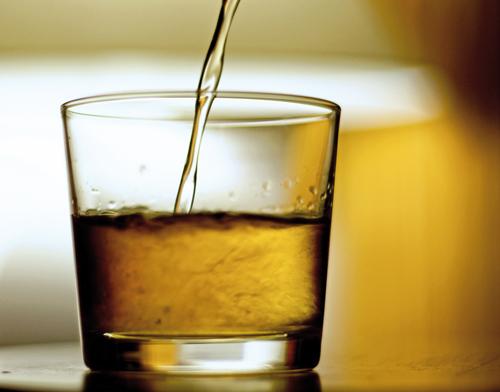Phuket Health: Damage in a glass

PHUKET: Newspaper articles often extol the potential health benefits of so-called moderate drinking, but while very small amounts can have some minimally beneficial effects, alcohol is a substance that does far more damage than good.
For example, alcohol consumption can induce up to 60 diseases; is the third leading lifestyle-related cause of death; and, in the USA alone, is responsible for about 80,000 deaths per year. So what is this little molecule – alcohol, or ethanol – likely to induce in our bodies?
Alcohol is found at different concentrations in beverages such as wine, beer, spirits and in many attractive fruity cocktails. Scientists define heavy drinking as consuming, for women, more than one drink per day on average and, for men, more than two drinks per day on average. A drink is defined as either 355 ml of regular beer (one can), 150 ml of wine (one glass) or 45ml of spirits (one shot).
The body rapidly absorbs alcohol: about 20 per cent heading to the stomach where it is diffused to other organs through the bloodstream. The remaining 80 per cent is absorbed by the small intestine, and first travels to the liver to be detoxified. The body considers alcohol a prime toxic product and prioritises its metabolic process over carbohydrates, vitamins and nutrients. Metabolic pathways are thus delayed and become less effective, resulting in poor nutritional status.
Purging the alcohol triggers an initial production of the potent carcinogen known as acetaldehyde and leads to an overproduction of fats (under the form of triglycerides). Both of these are released in excess quantities in the blood and stored within the liver. In addition, alcohol has a high affinity with cerebral cells and nerves. It exerts a direct deleterious effect on the cell membrane and binds to neurons’ receptors, leading to neurologic dysfunction and causing alcoholic addiction.
Depending on the quantity absorbed and individual sensibility (which greatly varies from person to person), the quantity of alcohol that cannot be immediately detoxified by the liver spreads to all organs and exerts various noxious effects on all cells. The remaining alcohol in the blood is finally eliminated through the lung (in the expelled air, which can be assessed by the breath alcohol test), urine and sweat.
The distribution of alcohol in the body leads to multiple organ damage and illnesses. The irritant effect on the digestive tract, coupled with the carcinogen produced during detoxification, is responsible for many cancers, especially of the mouth, throat, esophagus, liver and colon. Female drinkers are also more prone to breast cancers. Liver diseases are very frequent as this organ is the most exposed to alcohol’s toxic effects, initially with fatty liver (steatosis) and alcoholic hepatitis, and then with cirrhosis and liver cancer. Other digestive problems such as gastritis and pancreatitis can occur.
The neurological effects of alcohol induce cognitive impairment, anxiety, depression, psychiatric problems, neuropathy (chronic nerve damage which may result in erectile dysfunction) and stroke. Finally, chronic alcohol use may lead to hypertension, abnormal heart rhythm and cardiomyopathy.
In contrast, alcohol in ‘minimal amounts’ may have an anti-clotting ability and some slight positive effects on the elasticity of the arteries, which could confer some protective effect on the cardiovascular system.
Nonetheless, the medical community agrees that it is unethical to promote low alcohol intake as a preventive health measure. As the British Heart Association notes, there are safer options to keeping the heart healthy – among them, taking exercise, eating a healthy diet and being aware of such dangers as smoking, drinking, high blood pressure and stress.
Dr Gerard Lalande is managing director of CEO-Health, which provides medical referrals for expatriates and customised executive medical check-ups in Thailand. He can be contacted at gerard.lalande@ceo-health.com.
— Dr Gerard Lalande / The Nation
Latest Thailand News
Follow The Thaiger on Google News:


























